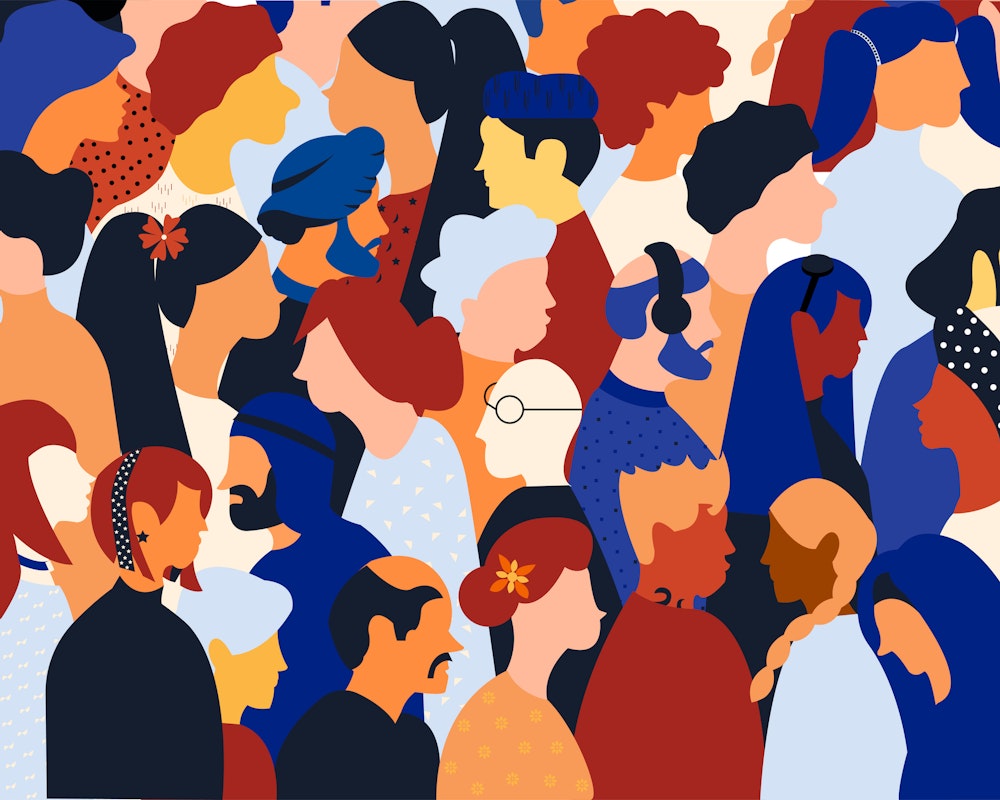
Brave Learning Spaces
The embodiment of social justice through a trauma-informed lens
May 11, 2022
Envisioning the embodiment of social justice in higher education feels liberating to me. It looks like a brave learning space filled with colors, music, and laughter. It feels like a place where critical conversations about disparity, identity, difference, and belonging can happen in the spirit of dialogue, not debate. I envision nonverbal body language, educators and students leaning in, and tones that sometimes rise with emotion and pain and soften with healing and compassion. The COVID-19 pandemic and current racial justice movement have shifted—in fact, upended—the way people work, live, and interact with each other. So, if ever there was a time for the embodiment of social justice through a trauma-informed lens in higher education, it is now. This involves, in part, creating trauma-informed campuses where students feel a sincere sense of belonging.
Trauma is defined as an event or series of events that are unpredictable and overwhelm a person’s ability to cope. Trauma is a reaction to a kind of wound, and when one is trauma-informed, one operates with the principles of collaboration, safety, choice, trustworthiness, and empowerment and voice. Rather than claiming expertise, we share what we have learned from our individual and collective experiences and invite others to join us in developing a community that embodies equity-based leadership and practice. Becoming trauma-informed is an ongoing process, an ongoing lesson, and a journey.
Trauma-informed campuses are brave learning spaces that intentionally create a sense of belonging. Such colleges and universities consider the diverse student body, faculty, and administration in all areas of campus life, from the physical design of campus spaces to modes of communication, to the facilitation of meetings and pedagogy. Moreover, institutions that are brave learning spaces feature faculty and administration who show solidarity in learning, the academic mission, and support for each other’s scholarship and research while modeling vulnerability and encouraging it in students. When faculty and administrators use their lived experiences as points of reference through storytelling, for example, they open up the space for others to share their stories and experiences.
Supportive climates help normalize trauma and create a feeling of universality. For example, telling my social work class that my mom had passed away from cancer and sharing my own grief process in an intentional way created an opportunity for students to share their own experiences with grief and loss during the pandemic. The course happened to focus on grief, trauma, and coping, yet I likely would have shared my mom’s passing at the first check-in of any course. My students have stated that they appreciate and learn from the human element I bring to the classroom.
In general, however, members of the academy lean heavily on intellectualization and externalization—essentially removing themselves from the conversation and refraining from sharing emotions that arise from critical conversations on trauma, race, culture, sexuality, gender, class, immigration, ability, age, and religion. With such removal, a shift in conversation occurs, one that is lofty and abstract and often disconnected from the self. In part because of the disembodiment and human disconnection I have witnessed in my experience in the academy, I have vacillated about whether higher education is the place for me.
I am a Latina and Black, Jewish cisgender associate professor of social work, and I work at a predominantly White institution. I recognize the privilege I have as a tenured faculty member, yet I live in the space of marginalization when engaging with my institution. My research and scholarly interests focus on trauma-informed social work from a social justice lens. I started my career as a clinician helping treat substance abuse and quickly learned that the clients, mostly women and men of color, had been given conflated identities of “addict” despite the long histories of interpersonal and sociopolitical traumas they experienced. Many clinicians working with these clients, with White-identifying clinicians dominating the traditional trauma space, did not value collaboration, empowerment and voice, trustworthiness, choice, and safety—the tenets of trauma-informedness.
I use my experience as a clinician to illustrate what happens when we in higher education do not embody a trauma-informed social justice lens in our leadership and in our pedagogy. This approach takes into account the impact of structural oppression on, for example, education, and prioritizes the need to create spaces of healing. Educators should ask: Do our students face the risk of faculty and administrators diminishing or scapegoating them because of an unwillingness to reflect on how the academy’s value and practices are devoid of trauma awareness? At the same time, are faculty and administrators excluding diverse world views and differences in culture and spiritual practices that may lead to healing? Are the guiding ideology and practices of the academy truly inclusive?
My pedagogy is grounded in a social justice lens and is one of embodiment. This means I remain connected to the emotions that meetings, classrooms discussions, and collegial relationships evoke. My body houses the knowledge I share and is deeply connected to any learning that happens in the classrooms I occupy. I look to my body for signals of distress and opportunities to contribute to a conversation. I convey when I am actively feeling discomfort and strive to practice mindfulness and intentionality through my daily practices of meditation and exercise.
So, how do we create the opportunities for embodiment in more higher education spaces? We can start by leaning into relationships and actively seeking and creating a community of allies, creating space for dialogue that allows us to listen deeply to one another, share stories, honor curiosity, welcome vulnerability, and prioritize collaboration. I would like for us as a community of educators and leaders in higher education to, as the chair of Adelphi’s Sociology Department has reminded me, recognize the importance of the adjective “higher” that is placed before “education” and think of it as a higher collective consciousness where embodiment is not only possible but normative.